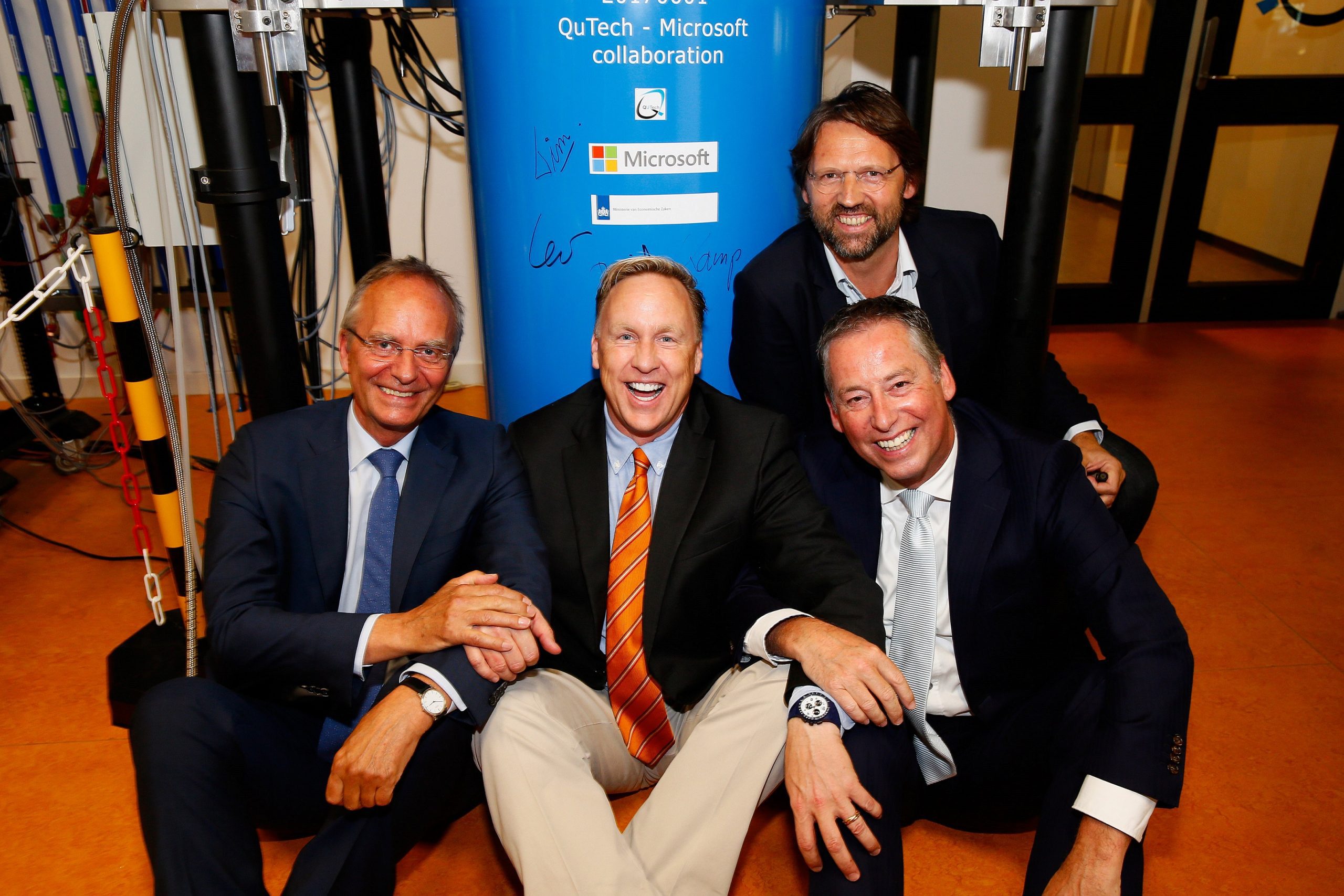In a strange combination of events, Microsoft announced both the departure of Leo Kouwenhoven this week ánd the discovery of scalable Majoranas – developed in Denmark.
In 2017, the cooperation between Microsoft and TU Delft was cause for optimism. Minister Kamp (left) came to visit Leo Kouwenhoven (upper right). (Photo: Roy Borghouts / TU Delft)
Quantum Physicist Prof. Leo Kouwenhoven moved from the Faculty of Applied Sciences to Microsoft in 2016 to continue working on the development of Majoranas as the basis of quantum computers.
He suddenly hit the headlines across the world (in Dutch) when he discovered that elusive quantum particle in 2012. After moving to Microsoft in 2016, there followed huge investments (in Dutch) in the TU Delft Quantum Lab where Kouwenhoven was Director. Three years later, King Willem Alexander opened the laboratory.
But last year, Kouwenhoven came under fire. Two ex-staff members alerted Nature to errors in a critical publication. Kouwenhoven deemed it necessary to withdraw the article. Silence then ensued.
Until this week when the ‘De Volkskrant’ newspaper (in Dutch) published the news that Kouwenhoven stopped working for Microsoft this month. Microsoft confirmed this to the newspaper. The company put his departure down to being ‘related to a change in the approach towards scalable quantum computing’.
‘Historic milestone’
Coincidentally or not, Microsoft seems to be on the path towards finding Majoranas even without Kouwenhoven. In a detailed press release, the tech giant speaks of ‘a historic milestone [..] needed to build scalable topological qubits’. Read: Majoranas. They were not developed in Delft but in the Quantum Materials Lab in Lyngby, Denmark.
Scientific Director Peter Krogstrup explains: “Microsoft chose a highly risky but very promising approach by developing a qubit that, in theory, looks like the very best qubit that you can get. But the challenge was that nobody has really seen these Majorana zero modes. We have now seen them and that is highly exhilerating. We need to further work on our technical options, but it looks like there really is a pathway to scalable quantum computing now.” A detailed checklist covering the criteria that a Majorana observation needed to meet was published a year ago. A more technical explanation was published on the Microsoft Research Blog.
The press release goes on to say that ‘far more challenging work [lies] ahead’ to build a scalable quantum computer. “The most important scientific question mark has now been erased,” says the team about Majorana building blocks for quantum computers. “And the next set of problems on the horizon, while still difficult, lie in slightly less uncharted territory.”
And Kouwenhoven? He did not comment on his departure to ‘De Volkskrant’, but says that he hopes to come back to it later. Kouwenhoven left the question of whether he will return to TU Delft, where he has retained a zero hour contract as a professor, unanswered.
Do you have a question or comment about this article?
j.w.wassink@tudelft.nl


Comments are closed.